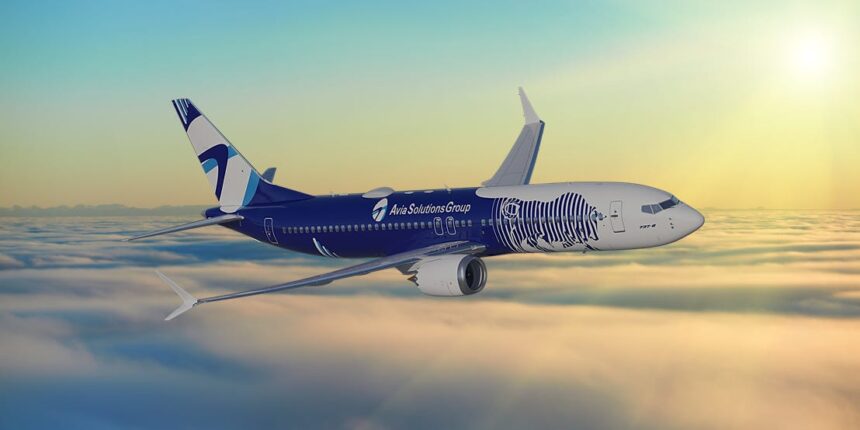“`html
Image courtesy of Avia Solutions Group
- Boeing has received its initial order after a seven-week machinists’ strike.
- Avia Solutions Group placed an order for 80 Boeing 737 Max aircraft.
- The path ahead remains challenging for Boeing as it strives to enhance production and quality standards.
Boeing has successfully secured its first order since the conclusion of a seven-week strike involving machinists.
On Tuesday, Avia Solutions Group (ASG) announced that it had ordered 80 Boeing 737 Max jets, with the orders split evenly between firm commitments and purchase options.
ASG identifies itself as the largest global provider of aircraft, crew, maintenance, and insurance services. The company specializes in wet leasing aircraft to airlines—offering not just planes but also crews and additional services—particularly during peak travel seasons.
The company operates a fleet comprising 220 aircraft and serves approximately 35 million passengers annually on behalf of its clients. This marks ASG’s inaugural direct order from an aircraft manufacturer.
This development is particularly positive for Boeing as it seeks to recover from what has been a notably challenging year, during which its stock price plummeted by 40%.
“ACMI providers like Avia Solutions Group play a crucial role in delivering flexible capacity to address fluctuating demands within our industry. We are privileged that Avia has chosen our airplanes to fulfill their customers’ needs,” stated Brad McMullen, Senior Vice President of Commercial Sales and Marketing at Boeing.
In contrast, last month saw Airbus secure an order from Riyadh Air in Saudi Arabia for 60 narrow-body jets. This occurred shortly after reports indicated that Boeing was poised to finalize an agreement with this ambitious new airline venture in the kingdom.
Despite the end of the strike, significant challenges remain for Boeing as it navigates through approximately $428 billion worth of backlog orders encompassing around 5,400 commercial airplanes.
This year has seen Airbus outperforming by both delivering more planes and receiving additional orders while scrutiny on Boeing intensified following January’s incident involving Alaska Airlines. During this event, a door plug detached mid-flight from a 737 Max due to missing essential bolts when leaving Boeing’s factory floor.
The Federal Aviation Administration (FAA) subsequently restricted production rates for the 737 Max series to just 38 units per month until safety improvements are implemented effectively. Currently, production rates have dipped below this threshold as adjustments are made; recent figures indicate deliveries have averaged around only 30 per month over the last quarter alone.
The delivery schedule for ASG’s newly ordered jets is anticipated to commence in 2030. To regain confidence among customers and regulatory bodies alike, it’s imperative that Boeing enhances both quality control measures and production efficiency moving forward.
Credit rating agencies have issued warnings regarding potential downgrades of Boeing’s bonds into junk status. Ben Tsocanos from S&P Global Ratings noted that while recent equity raises provide some financial buffer or “cushion,” future ratings will heavily depend on how well they can ramp up both output levels and product quality standards effectively.
Source
“`






